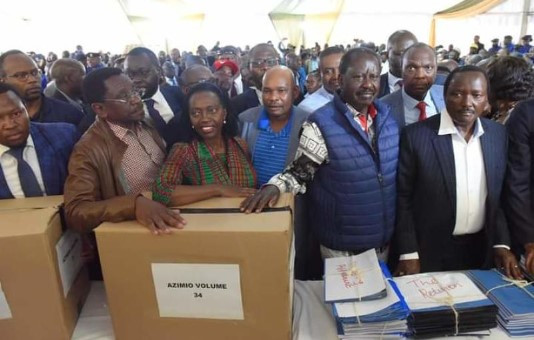×
The Standard e-Paper
Home To Bold Columnists

From left: Azimio-One Kenya Coalition leaders James Orengo, Martha Karua, Makau Mutua, Raila Odinga, Jeremiah Kioni, and Kalonzo Musyoka at the Supreme Court. [Samson Wire, Standard]
Azimio la Umoja-One Kenya presidential candidate Raila Odinga formally lodged a petition challenging the declaration of William Ruto as president-elect in the August 9, 2022 polls.